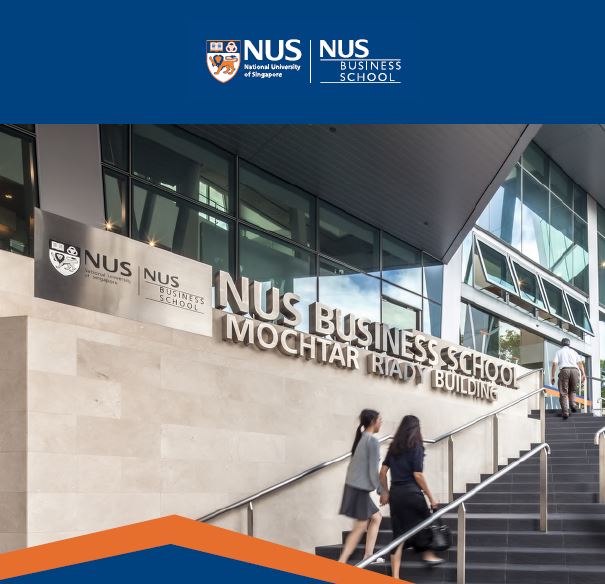NUS HRLP 4 – Leading and Inspiring Younger Colleagues

According to Professor Harry Kraemer, Clinical Professor of Strategy at Kellogg School of Management, “You have to be able to lead yourself before you can lead others.” This theory is what he refers to as values-based leadership, which is comprised of fundamental leadership principles. The course builds a foundation for developing values-based leaders by gaining a perspective towards the principles of values-based leadership. The course emphasizes upon developing a high performance organizational culture and the role of human resources. According to an article by whatishumanresources, Mentoring is the Employee training system under which a senior or more experienced person (the mentor) is assigned to act as an advisor, counselor, or guide to a junior or trainee. This course focuses on the fundamentals concepts of mentoring and reverse mentoring and provides a detailed understanding of the best practices to develop the successful mentorship and reverse mentorship programs.
Course Learning Objectives:
- Learn the essentials of becoming a values-based and serving leader.
- Develop an understanding of the role of human resources in shaping an organization’s culture.
- Gain an understanding of enabling employee engagement via organizational culture.
- Review the fundamentals of mentorship and reverse mentorship for inspiring the workforce.
- Understand the skills and best practices included in mentorship and reverse mentorship.
- Learn the ways of building a successful mentoring and reverse mentoring programs.
Faculty

Prof Michael Jenkins
Adjunct Associate Professor Management and Organisation, NUS Business School
Michael Jenkins teaches in the NUS Executive MBA programme and is Chief Executive Officer of management consulting firm Expert Humans. Michael has successfully led Leadership Development as CEO of Roffey Park Institute (UK/Singapore); Managing Director of the Center for Creative Leadership (CCL) – Asia Pacific; Director, INSEAD Executive Education (Asia) and CEO of the Human Capital Leadership Institute (HCLI).
Throughout his career, he has played a hands-on role in directing research and has been a key contributor and thought leader in the topic areas of organisational resilience, compassionate leadership, and developing more humane and productive workplaces. Michael has also worked closely with UK public health organisations to promote better mental health at work and is active in promoting sustainable business leadership. He works closely with HR Institutes and Think-Tanks such as CIPD (UK and Asia), AHRI (Australia), IHRP and SHRI (Singapore).
The UK’s HR Magazine named Michael as one of the UK’s Most Influential Thinkers in Human Resources in 2013 and again in 2016. He recently joined the UK-based FutureWork Forum (which explores the working world of tomorrow) as a Partner. Recent articles (2020/21) include: Finding Simplicity in Chaos: Beyond VUCA; The Chair-CEO relationship–Time to Dial Things Up; CHROs during COVID and beyond: A Resource for CEOs Hidden in Plain Sight and Should the CHRO become part of a Chair-CEO-CHRO Super Trio?
Syllabus
Learning Objectives:
- Learn the essentials of becoming a values-based and serving leader.
- Develop an understanding of the role of human resources in shaping an organization’s culture.
- Gain an understanding of enabling employee engagement via organizational culture.
Module Components:
Video Lectures:
- The Values-Based Leader: Part-1
- The Values-Based Leader: Part-2
- The Values-Based Leader: Part-3
- HR Leader’s Role in Shaping Organizational Culture
- Developing a High Performance Organizational Culture
- Understanding Serving Leadership in Detail
- Enabling Employee Engagement Through Organizational Culture
Readings:
- Principles of Value-Based Leadership
- Are You Ready for Gen Z in the Workplace?
- Attracting and Retaining Younger Colleagues
Quiz:
- Values, Culture and Communication as Enablers
Learning Objectives:
- Learn the importance of communication and influence in the hyperconnected world and steps to implement them.
Module Components:
Video Lesson:
- Why is Effective Communication Important for Leaders
- Key to Powerful Leadership Communication
- How to Influence Different Types of Individuals
- Difference Between Persuasion and Influence
- An Example – Persuasion and Influence
- The Magical Science of Storytelling by David JP Phillips
- Interview with Oussama – Story Telling
Readings:
- Leading in a Hyperconnected World
- Communicating with Influence in Matrix Leadership
- Essential Leadership Communication Skills
- Communication Styles For Effective Leaders
- What is Influence?
- Leading by Influence
- Storytelling Mountain
- How your Brain Responds to Stories and Why They’re Crucial for Leaders
Quiz:
- Leadership Communication in a Hyperconnected World
